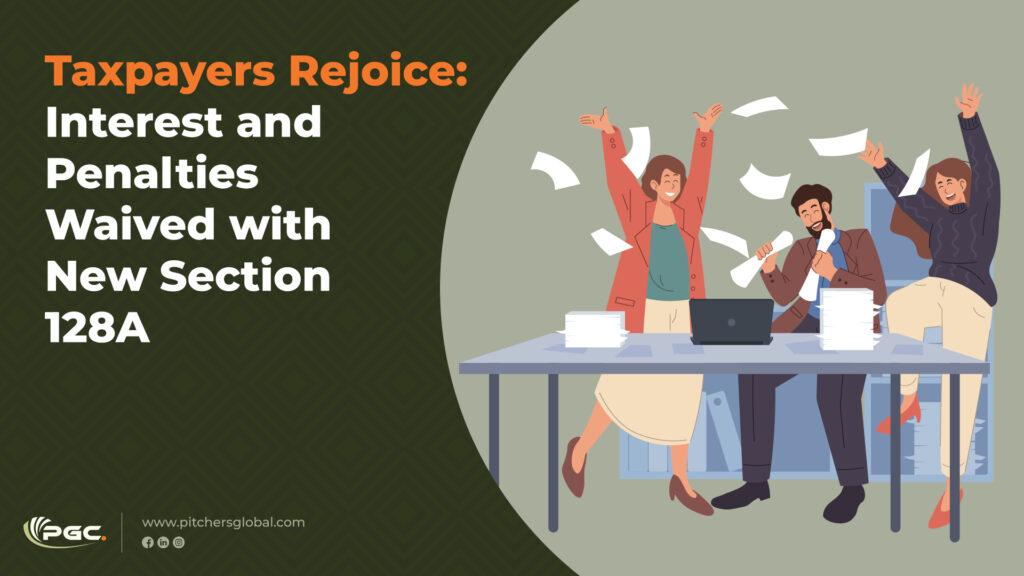What is Section 128A?
Section 128A offers taxpayers the opportunity to settle certain tax demands without the additional financial stress of interest and penalties. Often, taxpayers end up with substantial liabilities due to delayed payments or under-reporting, and the interest and penalties accrued can be overwhelming.
This new provision helps by temporarily eliminating those additional charges, making it easier for taxpayers to clear their dues.

Key Features of Section 128A

- Waiver of Interest and Penalties: The primary feature of Section 128A is the full waiver of interest and penalties on eligible tax demands. This waiver applies to outstanding tax liabilities where penalties and interest were a significant portion of the total amount due.
- Eligibility: The waiver is applicable to taxpayers who meet certain conditions. Generally, it covers under-reporting of income, delayed tax payments, or situations where taxpayers owe taxes but have not yet cleared their liabilities.
- Limited Time Window: The relief under Section 128A is only available for a specific period, creating an incentive for taxpayers to take action sooner rather than later. It’s important to stay updated on the deadlines to avoid missing out on this beneficial provision.
- Encouraging Voluntary Compliance: The government aims to promote voluntary compliance by waiving penalties and interest. Taxpayers are more likely to settle their dues when the financial burden is reduced, making this provision a win-win for the government and taxpayers.
Why Should Taxpayers Care?

The introduction of Section 128A comes as a huge relief for many taxpayers who find themselves struggling to pay off large sums due to accumulating interest and penalties. Here are some of the key benefits:
- Significant Cost Savings: Waiving interest and penalties can dramatically reduce the amount a taxpayer owes, especially in cases where delays have caused liabilities to balloon over time.
- Simplified Dispute Resolution: Tax disputes can be long and costly. Section 128A provides an opportunity to resolve outstanding tax demands without the hassle of dealing with compounded penalties, making the process smoother and more efficient.
- Peace of Mind: For taxpayers who’ve been worried about growing tax liabilities, this provision offers much-needed financial and emotional relief. It’s a chance to settle past issues and move forward without the fear of accumulating more debt.
How to Take Advantage of Section 128A
If you’re a taxpayer with outstanding tax liabilities, now is the time to act. Here’s how you can take advantage of the waiver:
- Review Your Tax Situation: Go over any pending tax demands or disputes. Identify which liabilities qualify for relief under Section 128A.
- Consult with a Tax Advisor: Seek professional advice to ensure you understand how this provision applies to your specific situation. A tax advisor can guide you through the process and help you meet the necessary requirements to benefit from the waiver.
- Settle Your Dues Quickly: Since the waiver is available only for a limited time, it’s important to resolve any outstanding issues as soon as possible. Make sure you are aware of the deadlines and requirements for compliance.
Conclusion
The introduction of Section 128A marks a major step towards making the tax system more taxpayer friendly. By waiving interest and penalties on specific tax demands, the government is offering taxpayers a much-needed opportunity to clear their dues without additional financial stress. This provision encourages voluntary compliance and will likely reduce litigation, benefiting both the taxpayer and the authorities.

Pitchers Global aims to provide you with the latest tax updates, insights, and expert advice!
